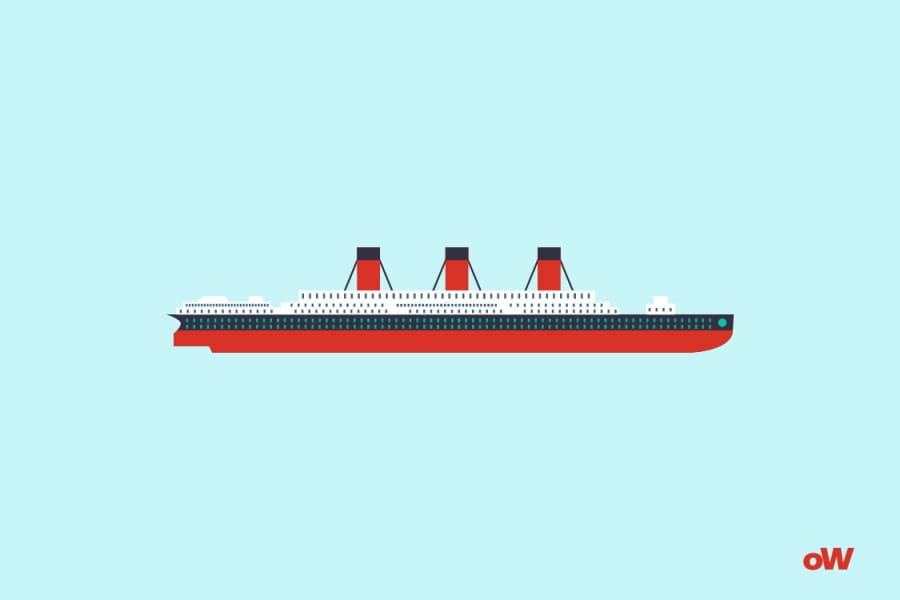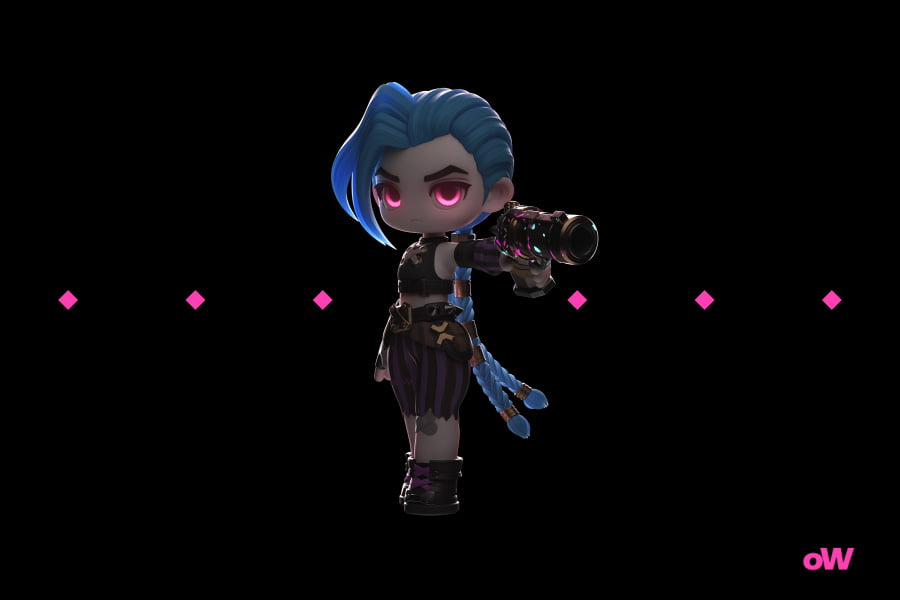Quiz: Which Titanic Character Are You?


On that April evening in 1912, the ocean was as smooth as a mirror. None of the 2,224 passengers suspected that their fates were about to intertwine into one of the 20th century's most dramatic stories. Eighty-five years later, James Cameron resurrected these destinies on screen, creating not just a film – but an entire universe of characters, passions, and dramas, in which each of us can find a reflection of our own soul.
Titanic – A Mirror of Human Nature
The story behind the film's creation is an epic saga in itself. Cameron, obsessed with maximum authenticity, didn't just study archives and blueprints. He dove to the ship's wreckage twelve times, spending more time underwater than some historians spend at their desks. The director delved so deeply into details that he even recreated the carpet patterns in the first-class corridors using preserved samples from Titanic's sister ship, the Olympic.
The film crew worked in conditions that closely mimicked the reality of that fateful night. The water temperature in the pool was maintained at 7°C – exactly as it was in the Atlantic on April 15, 1912. Kate Winslet and Leonardo DiCaprio spent hours in this icy bath, and their shivering in the final scenes wasn't acting – it was their bodies' genuine reaction to the cold.
But the film's main greatness lies not in technical details, but in how accurately it captures the entire spectrum of human characters revealed in extreme situations. Each character is a whole world, with their own philosophy, fears, hopes, and internal conflicts.
Description of "Which Titanic Character Are You?" Quiz
Our quiz is an engaging journey into the world of Titanic's characters. It features 16 carefully crafted questions, each immersing you in the atmosphere of 1912. You'll find yourself in various situations: from choosing an outfit for a first-class dinner to making decisions at the critical moment of collision with the iceberg.
What makes this quiz special? We've thoroughly studied not just the film, but historical documents as well. Each question is based on real situations and dilemmas faced by Titanic's passengers. For instance, when you answer how you would react upon hearing the alarm signal, you're essentially living through a real moment in history.
There are no right or wrong answers in this quiz. What matters is your sincerity. You might choose one solution in a calm environment but act completely differently in a stressful situation. These nuances determine which character is closest to your nature.
We've paid special attention to psychological details. The questions encode various aspects of personality: from attitudes toward social conventions to the ability to make quick decisions in critical situations. This isn't just an entertainment test – it's an opportunity to better understand yourself through the lens of one of the greatest stories of the 20th century.
Behind the Scenes of Destinies: Psychology of Titanic's Characters
Each Titanic character is a complex psychological portrait, reflecting various facets of human nature in a moment of ultimate trial. People of different social classes and characters met aboard the liner, and it was the extreme situation that revealed their true faces, exposed internal conflicts, and uncovered hidden qualities of their nature.
Main Characters
Rose DeWitt Bukater
At the beginning of the film, we see a typical representative of early 20th-century high society. But this is just an outer shell. Beneath the corset and luxurious dresses lies a rebellious soul yearning for freedom. Her interest in avant-garde art isn't just a rich girl's whim, but a symbol of internal rebellion against Victorian conventions.
Actress Kate Winslet immersed herself so deeply in the role that during filming, she developed real corset calluses – exactly like women of that era. She spent months studying early 20th-century etiquette, speech patterns, and aristocratic walking. She even learned to maintain posture with a book on her head – an art that girls from high society were taught from childhood.
Jack Dawson
At first glance, Jack might seem like a simple romantic hero. But his character is much deeper. He's someone who learned to value life after losing his parents at fifteen. His wandering through Europe isn't idleness, but a conscious choice of someone who understood that true wealth lies not in money, but in experience and impressions.
Interestingly, his drawing skills weren't just a screenwriter's artistic device. In the early 20th century, many street artists earned their living doing quick portraits in European cities. They were like photographers of their time, capturing moments in ordinary people's lives.
Caledon Hockley
Perhaps the most underrated character in the film. He's often perceived as a one-dimensional villain, but this is a misconception. Cal is a product of his era and upbringing. He sincerely believes that money can buy everything, including love, because that's what he was taught from childhood. His tragedy lies in his inability to understand that some things simply can't be obtained through force or money.
Billy Zane, who played Cal, specifically studied the behavior of early 20th-century industrial tycoons. He noticed that many of them had a specific way of carrying themselves – a mixture of arrogance and vigilance, as if they constantly expected treachery from those around them.
Supporting Characters, But Not Supporting Destinies
Molly Brown
Her real biography is even more amazing than shown in the film. Margaret Brown was born into a poor Irish immigrant family. In her youth, she worked at a tobacco factory, then married a simple miner. When her husband unexpectedly struck it rich in gold mining, Molly didn't lose her head from sudden wealth. Instead, she engaged in charity work and women's rights advocacy.
During the disaster, she not only helped row the lifeboat but also organized fundraising among surviving first-class passengers to help less fortunate victims. After the rescue, she wrote several letters to newspapers, criticizing class discrimination during passenger evacuation.
Thomas Andrews
The Titanic's chief designer is portrayed in the film with amazing historical accuracy. He really did know many shipyard workers' names and often communicated with them directly, which was unusual for a person of his position. Every morning during the voyage, he would walk around the ship with a notebook, writing down the smallest defects for later correction.
The film includes a heartbreaking scene where Andrews gives his life jacket to a little girl. This episode is based on real survivors' testimonies. He was last seen in the first-class smoking room, where he removed his life jacket and placed it on a table, understanding that his creation was doomed.
The Titanic's Orchestra
We see them briefly in the film, but these musicians' story deserves special mention. All eight orchestra members perished, continuing to play until the last minute. Their final composition wasn't "Nearer, My God, to Thee" as shown in the film, but the cheerful melody "Songe d'Automne". They deliberately chose uplifting music to maintain passengers' spirits.
What Will Your Result Reveal?
Each result in our quiz isn't just a character name, but a complete psychological portrait. Let's examine what each possible result might mean:
If You're Rose...
You're likely someone at a crossroads. Perhaps right now you feel life demands an important choice from you. Like Rose, you possess the inner strength to break free from circumstances. Your sensitivity to art and beauty speaks of a rich inner world. But most importantly, you're capable of decisive actions when it comes to your freedom and happiness.
Jack as Your Reflection...
This result speaks to your ability to see opportunities where others see obstacles. Like Jack, you know how to turn chance encounters into adventures and setbacks into new beginnings. Your strength lies in living in the present moment, not letting fear of the future or burden of the past control your decisions.
Matching with Molly Brown...
Means you have a true fighter's spirit with a sensitive heart. You know how to maintain humanity even in the most challenging situations. Like Molly, you probably possess natural wisdom and the ability to see good in people regardless of their social status.
If Your Result is Thomas Andrews...
You're a perfectionist in the best sense of the word. Your dedication to work combines with a deep understanding of responsibility. You're among those who create not for fame or money, but because it's your calling.
Why This Quiz is Special?
In a world where dozens of new online tests appear daily, our quiz stands out for its depth of character development. We don't just ask about your preferences – we explore your life values, attitude toward important decisions, and ability to face circumstances.
Each quiz question is based on real situations from the film, which in turn reflect true events of that fateful night. For example, when we ask about your reaction to a crisis situation, we rely on documentary evidence about the behavior of actual Titanic passengers.
The Titanic story isn't just about a shipwreck. It's about how extreme circumstances reveal people's true essence. That's why our quiz results can tell you something important about yourself.
In the end, we're all sailing through life's ocean, full of surprises and dangers. And how we handle these trials defines who we really are. Take our quiz, and you might discover qualities you never suspected you had.
After all, each of us has a piece of the brave artist Jack, ready to risk everything for love; the determined Rose, capable of changing her destiny; and the practical Molly Brown, maintaining composure in critical situations. The key is to listen to these voices within yourself and understand which one guides you through life.
And perhaps, after taking this quiz, you'll realize you're capable of actions that previously seemed impossible? Who knows – maybe today you're standing on the threshold of your own "Titanic," and this test will help you make the right choice.
Questions Overview
- A reminder that time is precious and every detail matters
- A symbol of society's obsession with status
- An inspiration to live fully in the moment
- A testament to human achievement
- Consommé Olga, to appreciate the chef's technical skill
- Punch Romaine, the era's revolutionary frozen drink
- The simple but perfectly cooked Roasted Squab
- Waldorf Pudding, an American classic
- Calculate our exact position relative to the reported ice field
- Question why we're maintaining such high speed
- Share the information with other passengers
- Compare it with your previous Atlantic crossing experiences
- Study the innovative heating system
- Reflect on the contrast between luxury and steerage conditions
- Sketch the unique Arabian designs
- Strike up conversations with other bathers
- Wonder about its impact on the ship's stability
- Question the extravagance while third class lacks basic amenities
- Appreciate its democratic nature - skills matter more than class
- See it as a symbol of progress
- The structural integrity of the bulkhead
- The crew's working conditions
- The stokers' safety
- The need for better safety protocols
- Inspecting the innovative watertight door system
- Attending the controversial suffragette meeting
- Photographing third-class passengers with your new Brownie camera
- Teaching English to immigrant passengers
- They should match the original design specifications
- It reflects society's reckless confidence
- The space could've been used for third-class recreation
- More boats are needed, regardless of regulations
- The acoustic engineering of the dining saloon
- The hypocrisy of praying while maintaining class divisions
- Sketching the diverse gathering of passengers
- Organizing an inclusive service for all classes
- Technical details of the ship's construction
- The contrast between first and third class
- Candid moments of passengers' joy
- The crew at work
- Analyze its integration with ship operations
- See it as a tool for social change
- Use it to share passengers' stories worldwide
- Appreciate its practical safety benefits
- Consider its structural integrity at sea
- Appreciate its break from stuffy Victorian traditions
- Sketch the casual, Continental atmosphere
- See it as bridging European and American styles
- Focus on their mechanical reliability
- Note how they reinforce class separation
- See them as eliminating social barriers
- Value their practical convenience
- Study how the activities affect deck stress
- Challenge gender-based team divisions
- Organize inclusive games across classes
- Teach American variations of the games
- Monitor its efficiency and safety
- Question the unequal heating between classes
- Appreciate how it helps third-class passengers
- Suggest improvements based on Colorado winters
- The ship's draft and trim
- The class distinctions visible in the crowds
- The emotion in people's faces
- The logistics of such a massive departure






